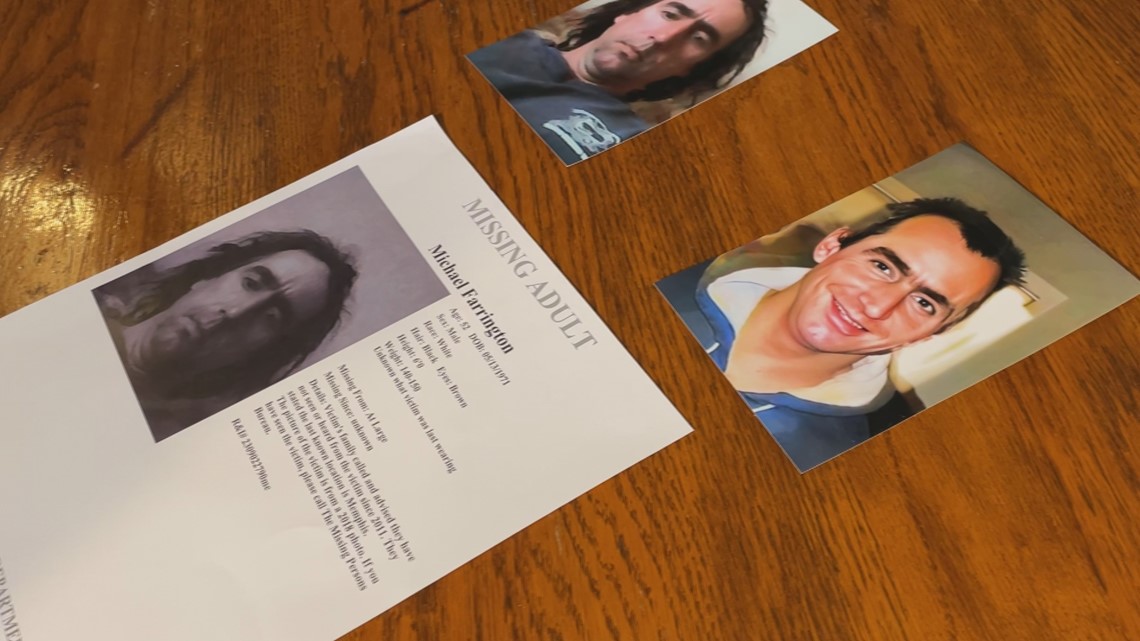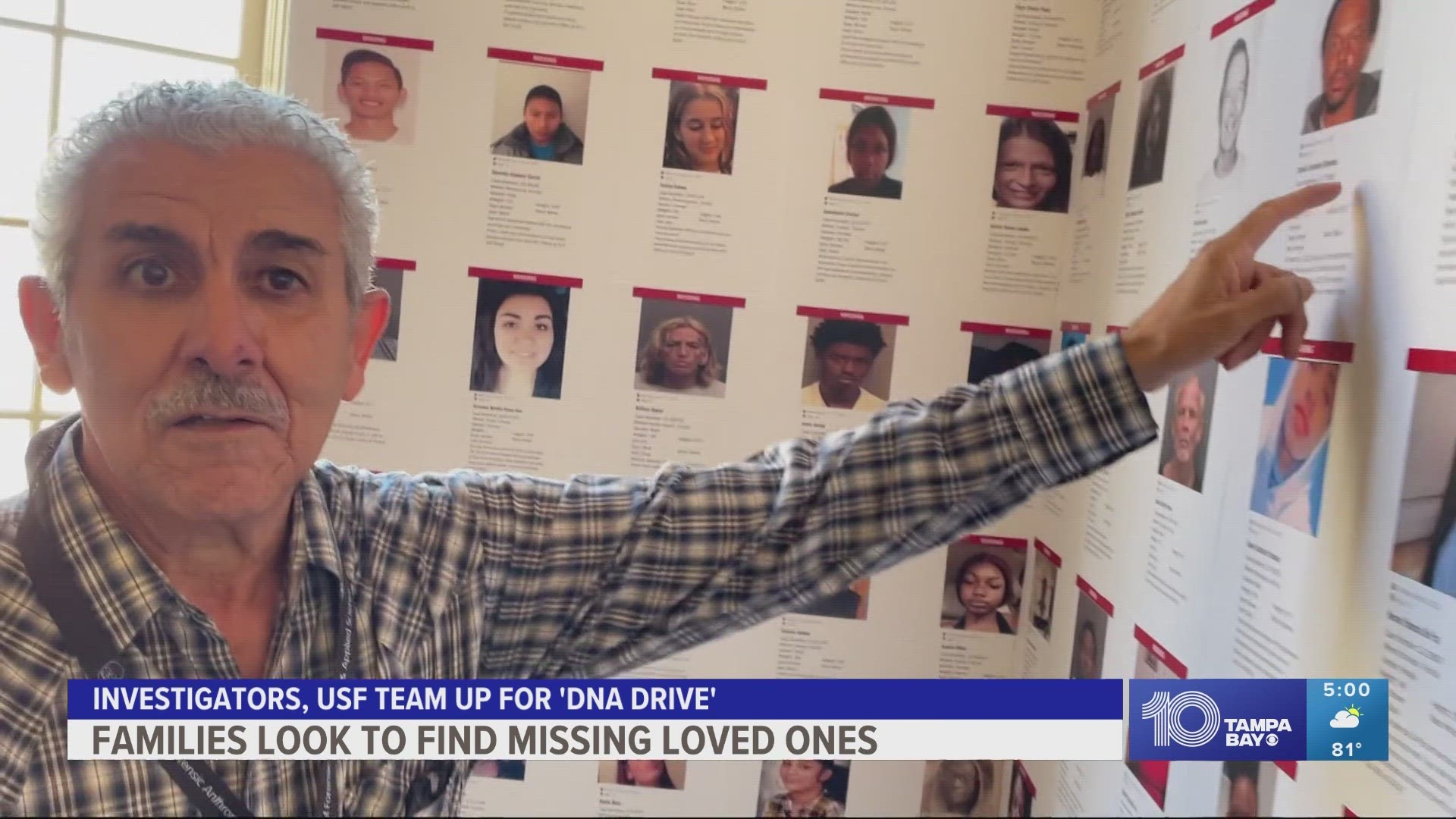TAMPA, Florida — Nearly a thousand miles from Indianapolis, Indiana Mary Jones came to Ybor City looking for help.
"He is my little brother, so I’m trying to find him,” she said.
She only had a couple of things in her luggage: police reports and photos of her brother Michael Brad Farrington, last heard from in 2013. She reported Farrington missing in Memphis, TN, but found a possible address for him in Florida.
“I flew down here to file the report down here, so that if he is here, maybe we can locate him because we miss him and we love him,” she explained.
Though Jones is far from home, she shares an unfortunate bond with many who came to Ybor City in search of hope.


At the “Missing in Florida” event, local law enforcement agencies and researchers at the Florida Institute for Forensic Anthropology and Applied Science at USF teamed up for a DNA drive. Collecting data, reports, pictures and DNA samples in an effort to crack down on cold cases and locate missing persons.
Right now, more than 3,200 people in Florida are reported as missing or endangered, 900 John and Jane Doe cases are also open.
“Even though he's a grown man, he's still my child,” says Vivina Barnwell, who was there to give her DNA sample. Her son Peiarre Canty disappeared from New Port Richey in 2016.


“When you don't know where your loved one is, you have nightmares, you don't sleep good,” she explained.
Sid Crespo and his wife Hattie know those sleepless nights – their son Joshua Simmons was last seen in Tampa in March 2022.
“We're trying to get attention trying to get some help to determine where our son is,” Crespo said.
“It is never too late. That's my message,” said Citrus County Sheriff Michael Prendergast, who explains it’s any one person could hold vital information that may bring closure to some cases. “There are facts out there and we want to get those facts in front of the right hands that are working these cases tirelessly to help these families.”
Advancements in DNA sequencing and science over the last few years have brought new hope to the efforts and closure for other local families.
“We want to help those families who especially have long-term missing loved ones, get the resources and access they need,” says Dr. Erin Kimmerle, director of the USF lab.
An event like this is priceless to those who know the pain of not knowing.
“I can't even explain it. I've spent years trying to find my brother and talking to different departments. So this is invaluable and I hope that they never stop doing this,” Jones said of the event.
While this was an annual event, Prendergast wants to remind people that local law enforcement agencies are available to take information, DNA samples and more at any time to help solve these cases.

